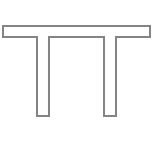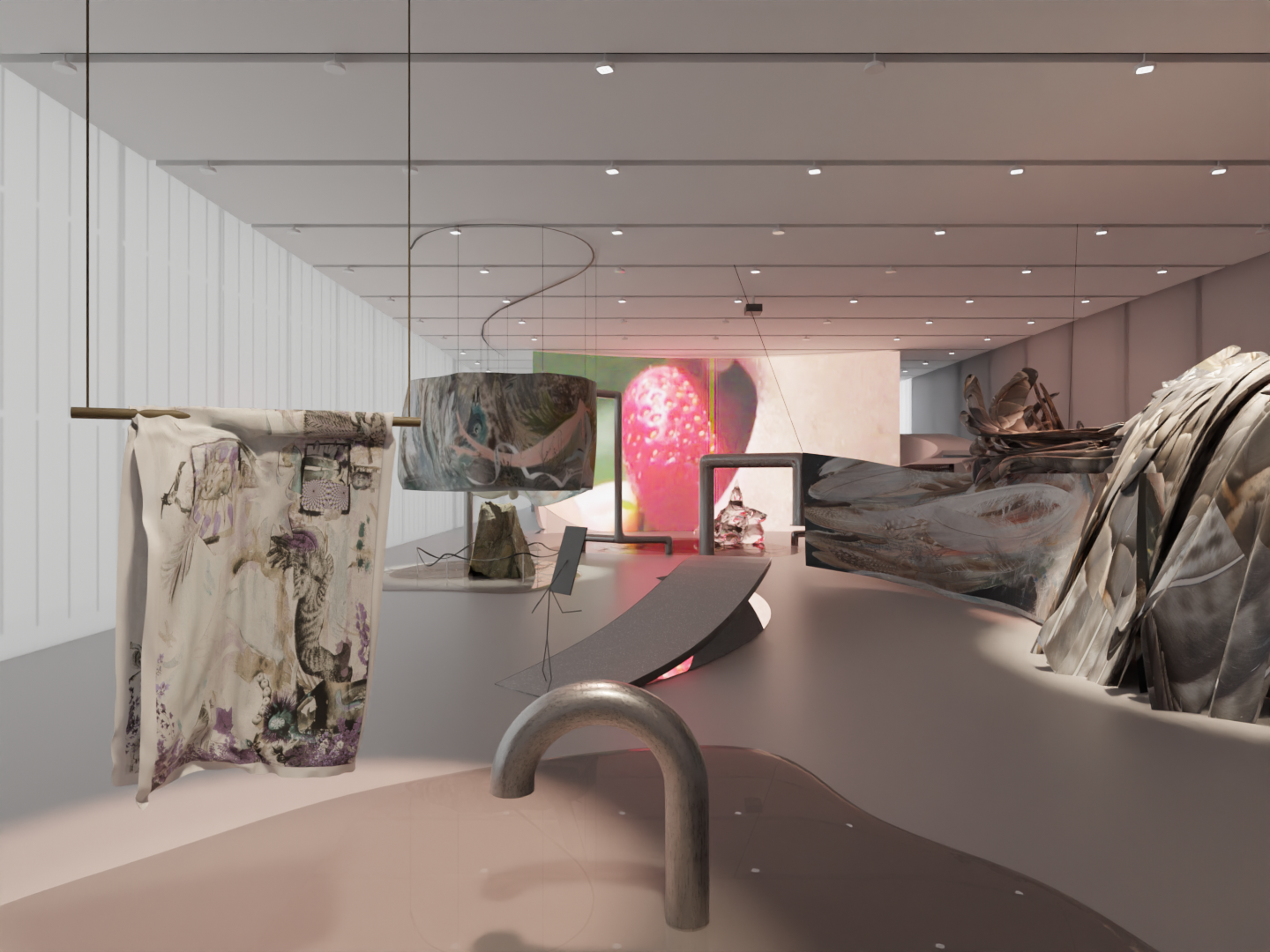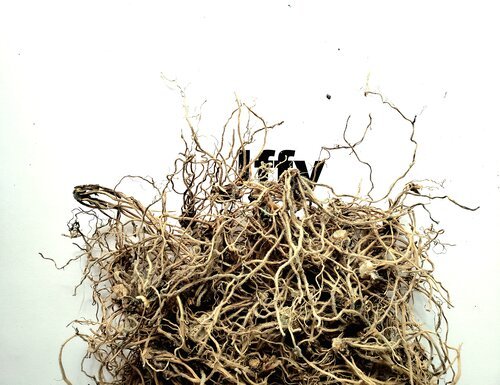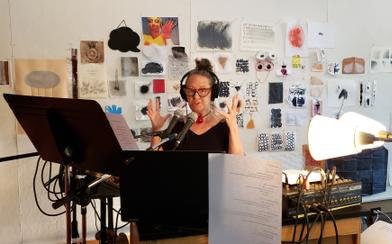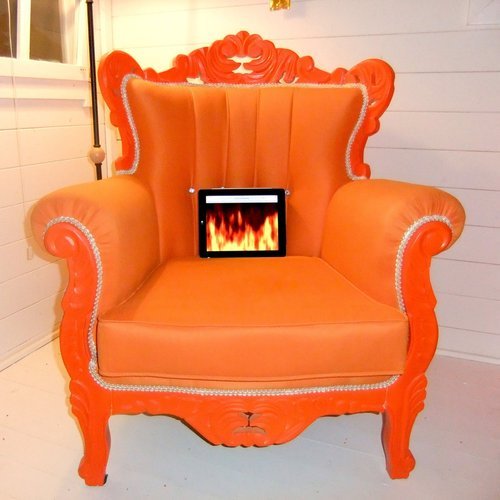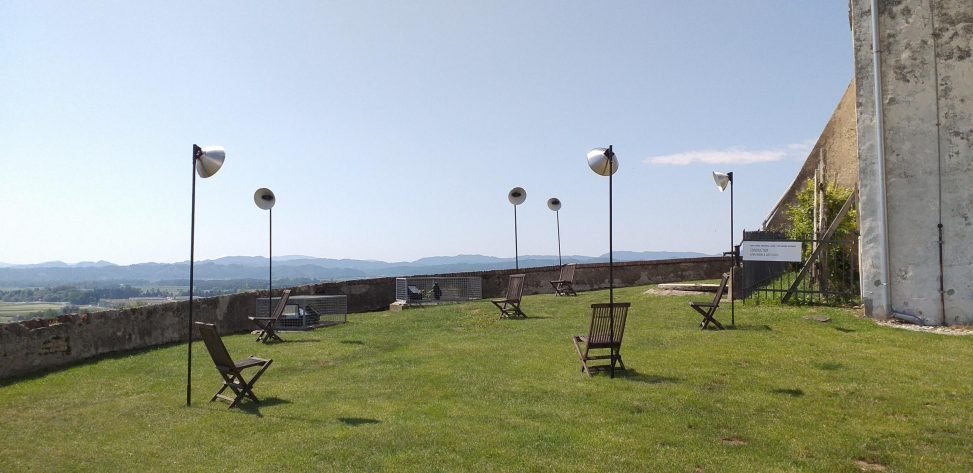Open Window EVENTS
talks, screenings, Somatic SESSIONS, CASE STUDIES, LECTURES, listening sessions & more.
The institute opens the window on our sessions to share with alumni and the public part what takes place in our topic-based intensives and residencies with our students.
Register for upcoming open window talks
You will automatically be sent a link to attend the event.
See our Program Schedule for full list of talks.
We look forward to seeing you!
upcoming
31 January 2026
AI x FAsCISM, A TALK BY GEOFF COX
13:30 - 14:30 UTC
archive
LIVE TT LONDON PROGRAM JULY 14-18, 2025
i. Britta Fluevog ii. Prompt: “what the future of British art collections looks like”. Image generated using Midjourney. © Sami Itavuori, 2024. CC BY-NC iii. Google drawings image Lexicon 1A, AW 2025 iv. Teodora Sinziana Alata v.” Exhibition transmission situation" modified from Michael J. Apter's "Information transmission situation"(1969) vi. Bokco vii. Sandra Becker viii. Stefanie Denz ix. Chandana Dixit x. Sean Onodera Shotaro xi.Laurence Arcadias
JULY 14 - 17
PRESENTATIONS + EXHIBITION
ANTHOLOGIES ASSEMBLY 2025
LIVE FROM LONDON
PRESENTATION AND PERFORMANCE PROGRAM
(scroll up for times)
EXHIBITION: BRIDGE WITHOUT
Bridge Without is an experimental and process-oriented exhibition for the Transart Institute 2025 PhD Residency, embracing the transnational character of the program to foster imaginative potential and provide a nourishing environment for connection and exchange.
In this iteration of the TT annual student-led Anthologies Assembly, we interrogate the ethics of disclosure, ownership, and the nature of hidden knowledge - are there secrets or kinds of information that should remain hidden from artistic research? Do the ethics of our work require us to conceal as much as reveal, depending on the nature of the investigation and who is doing the investigating? Are there things that should remain concealed from or in our own research - or even from us, as we inhabit the role of investigator?
OPENING RECEPTION:
MONDAY 14 JULY, 6:30-8:00PM
GALLERY OPEN HOURS:
TUESDAY 15 JULY, 1:00-4:00PM; THURSDAY 17 JULY, 10:00AM-12:30PM
LOCATIONS:
BOROUGH ROAD GALLERY + STUDIO 6
London South Bank University (LSBU)
103 Borough Rd, London SE1 0AA
JULY 18
13:45 - 15:00
TALK - CONTEMPORARY RESEARCH: ISSUES OF ARTICULATION WITH MICHAEL SCHWAB
London South Bank University (LSBU)
103 Borough Rd, London SE1 0AA
In most cases, artistic research still must navigate a tension between epistemic and artistic demands. Occupying a middle ground is often not satisfactory leading to questions regarding the quality of artistic research outputs either in terms of science or art. Rather than accepting the existing frameworks, Schwab’s work in the context of the Journal for Artistic Research (JAR) has focussed on the possibility that each articulation of research in the arts could propose its own frameworks thus challenging, in specific articulations of research, conventions of both knowledge and art. This talk will explain how this position can link developments in historical epistemology as well as contemporary art leading to a different assessment of the labour of artistic research.
Michael Schwab is a London-based artist and artistic researcher who investigates postconceptual uses of technology in a variety of media including photography, drawing, printmaking, and installation art. He holds a M.A. in philosophy (Hamburg University) and a PhD in photography (Royal College of Art, London) that focuses on post-conceptual post-photography and artistic research methodology. He is the founding Editor-in-Chief of the Journal for Artistic Research (JAR), co-editor of Intellectual Birdhouse. Artistic Practice as Research. (2012), co-editor of The Exposition of Artistic Research: Publishing Art in Academia (2013), editor of the book Experimental Systems. Future Knowledge in Artistic Research (2015) as well as the editor of Transpositions. Aesthetico-Epistemic Operators in Artistic Research (2018) and co-editor of Futures of the Contemporary. Contemporaneity, Untimeliness, and Artistic Research (2019). Through a focus on experimentation and the exposition of practice as research, Schwab has developed a conceptual approach that links artistic freedom with academic criticality. SITE.
Saturday, 31 May 2025
sound and space
WITH mary edwards
15:00-16:00 UTC
Spaces and places speak, hum, and bellow with echolocation. The natural environment, much like architecture or our physical beings, exudes intonations and wordless music. Entire scores exist in the depths of the ocean, waiting to be transcribed from a body of water to a body of sounds that convey and express the harmonies and dissonance in our everyday lives. How do we seek out the conversations that take place at the intersection of these ideas in how sound can unearth or revitalize hidden or obscure histories, stories and events within places, bodies and containers? How can we play with recollection of events paired with addressing environmental exclusivity?
In this talk, Edwards will synthesize these ideas in a discussion of projects: a composition that is an “ode rather than an elegy” to the transforming Arctic landscape/Space Analogues intended to sonically provide access for all by “de-centralizing the centered and un-othering the others” with an understanding of climate vulnerability, elemental sensuality and terrestrial/space connectivity; a poem about environmental stewardship and the pursuit of education in the Jim Crow Era; an aqueous soundscape whose own memory and "voice" implies both a tenacity and a detachment evidenced by the predicament of a tiny but mighty waterway that was once the centerpiece of the 19th Century New England textile industry; and an immersive installation of sonorous geological and oceanographic assemblages in response to encounters on mountain in Northern California that evoke seismic activity—both destructive and regenerative—as frightening things can also be beautiful.
Alternative Reality Gardening
WITH Maggie Buxton
22:00 - 23:00 UTC
In this presentation, Dr Maggie Buxton offers a critical analysis of Alternative Reality Gardening - a project facilitated by her company, AwhiWorld in Whangārei, NZ. The initiative explored the intersections between digital arts, ecological sustainability, and social innovation. Dr. Buxton will discuss the methodologies and outcomes of merging traditional and emerging technologies in creative practices through a retrospective examination. This analysis will include a review of the diverse contributions from local and international artists, scientists, space researchers, farmers, psychotherapists, and others who collaborated. Highlighting the project's role as a catalyst for social ínnovation and transdisciplinary practice, the talk will also examine the broader implications of such innovative approaches for academic research and artistic production. Attendees will learn how transdisciplinary strategies can challenge conventional perspectives and foster novel solutions to contemporary global issues.
sunday, 1 june 2025
Modes of Negating, Negativities and Affirmation’s Crucial Critique
WITH Antonia Pont
23:00 - 00:45 UTC
In this talk, Antonia Pont will consider various modes of negating from philosophy, as well as how we might practise “unknowing” as a way to allow for emergent intimacy with our negating habits and their traces. How do we (tend to ) resist, how do we (tend to) comply, how do we tantrum, or even how might we sometimes decide?
Saturday, 29 March 2025
Fleeting Space
WITH Gyungju Chyon
22:00 - 22:30 UTC
Humans regulate indoor environments—such as heat, humidity, and light—to enhance comfort and safety. Some spaces must maintain consistent conditions year-round to protect valuable contents, despite external weather variations. However, indoor environments are not entirely isolated from external fluctuations; airflow and light can vary. Sometimes, we notice these changes, while other times, they are so subtle that they go unnoticed.
The Fleeting Space workshop focuses on shifting, fleeting atmospheric phenomena. Participants will work with atmospheric elements such as light reflection, refraction, shadow, air movement, heat, sound, and smell. You will examine where and how these changes occur in your space and document the subtle changes using your choice of medium, such as drawing, painting, sketches, photography, physical experiments, or audio/visual recordings.
sunday, 30 March 2025
art got me here
WITH perri lynch howard
13:00 - 14:00 UTC
In this presentation, Perri Lynch Howard will share her trajectory as an artist, tips and tricks for successfully operating an art business, and "workshop" some questions from participants.
Howard is an artist dedicated to forging new narratives from the front lines of climate change. Working in the context of extreme environments is an essential aspect of Howard’s practice, driving her curiosity to seek a deeper sense of place, beyond the dichotomy of near and far. Recent projects investigate the passage of sound, light, and signal through landscapes on the front lines of climate change - a phenomenology of place. Her projects have received support from numerous residencies and granting agencies including Artist Trust, the Montello Foundation, Civita Institute, Willapa Bay AiR, PLAYA, Vashon Artist Residency, Kingsbrae International Residency for the Arts, Jack Straw Artist Support Program, Centrum Foundation, the Atlantic Center for the Arts and the Mamori Sound Project, among others. Perri’s art has a global reach through projects completed in Italy, Portugal, Brazil, Canada, and in South India as a Fulbright Scholar.
Sunday, 26 january 2025
mishandled archive: a journey from multi-disciplinary phd project to publication
with alessandra cianetti and tara fatehi
15:00 - 16:30 UTC
This artist and curator conversation delves into "Mishandled Archive": a publication resulting from Tara Fathei's now-completed PhD at the University of Roehampton (UK).
Mishandled Archive is a cross-disciplinary project challenging our understanding of history, personal archives, and itinerancy through participatory dance, photography, social media, site-specific art, storytelling, and performance. In her PhD, Tara proposed mishandling as a method to engage with archives through multivocality, pyromania, mythology, and web-archaeography.
Led by Alessandra Cianetti, the conversation will focus on Tara's playful research methodology and artistic practice, exploring the interwoven layers of personal and historical narratives she encountered from PhD to publication, and how her doctoral studies have influenced her practice and work.
TT students are welcome to bring their questions and experience working with archives, multi-disciplinary practices, and personal journeys across art and academia.
Saturday, 23 Nov 2024
One and More than Three Chairs: On Image-Based AI and In visual Literacy
WITH Geoff Cox
14:00 - 14:30 UTC
How has visual literacy been transformed by developments in image-based AI? How are dominant worldviews reinforced differently through visual culture today, and what kind of literacy applies, if at all? To what extent are the relations between words and images transformed by computational processes and prompts, and what are the implications for artistic and critical practices? The workshop explores these questions in relation to widely available commercial releases of generative AI tools, such as text-to-image models that use deep learning methodologies to generate digital images from natural language description. It offers some practical exercises to explore issues that arise, using Kosuth’s conceptual artwork One and Three Chairs from 1965 as point of departure.
SUNDAY, 29 SEP 2024
Image: Carlo Santagiustina
A Digital Community Memory about the Societal Impact of Climate Change: The case of AquaGranda
with Carlo Romano Marcello Alessandro Santagiustina,
Costanza Sartoris, and Giulia Saya
13:00 - 14:00 UTC
Understanding socio-natural events requires a multidisciplinary approach that captures the intricate relationships between human societies and natural phenomena. The AquaGranda project, launched in 2020, exemplifies this by integrating science, art, and community engagement to document the impact of climate change, particularly rising sea levels, on Venice and its lagoon.
During the talk, students will engage in a dialogue with Costanza Sartoris, one of the curators of AquaGranda, and Carlo Santagiustina, a researcher and artist who leads AquaGranda’s R&D efforts. Together with the students, they will explore participatory and web-based approaches for collecting and valorizing digital memories, transforming them into artworks and exhibitions that transition between physical and digital spaces. The case of AquaGranda will demonstrate how digital memory can be a powerful tool for understanding and addressing the societal challenges of our time caused by climate change and rising sea levels, promoting a constructive dialogue on the future of Venice and other coastal areas.
Sunday, 26 MAY 2024
CREATIVE NONFICTION AND THE GENRE OF THE THESIS
WITH ROBYN FERRELL
00:00 - 01:00 UTC
This talk outlines the genre of the academic thesis, and in particular, the thesis that seeks to write up creative research. It investigates whether creative nonfiction can be a useful comparison genre. This talk looks at how writing techniques taken from creative non-fiction might help in constructing a thesis that is in sympathy with creative research but which at the same time meets the genre demands of academic submissions. It looks at how one can use biographical and personal material alongside reportage and analysis, to produce a cogent and vibrant accompaniment to the creative project.
Professor Robyn Ferrell is an Australian writer and philosopher, adjunct at the School of Philosophical and Historical Inquiry at the University of Sydney. Robyn Ferrell is the author of several books of philosophy; the latest, Philosophical Essays on Free Stuff, is out now with Lexington Books. Her book of creative non-fiction, The Real Desire, was shortlisted for the NSW Premiers Award in 2005. She writes regularly on art for eyeline magazine (QUT). Her most recent novel is entitled Private Language.
SATURDAY, 30 MARCH 2024
WICKED WORLDING
WITH THE RODINA
15:00 - 16:00 UTC
What are our roles, responsibilities, and capacities as situated world-makers? How can we design situations and environments that encourage activity and participation leading toward the transformation in a viewer or a social context? During this talk, Amsterdam-based designer Tereza Ruller (The Rodina) tries to answer these questions by introducing a range of methods and approaches –including performativity, embodiment, and processuality. These techniques allow designers to go beyond the traditional boundaries of graphic design and embrace inclusivity, challenge norms, resist power structures, and convey previously marginalized stories. Undoubtedly, Wicked Worlding positions communication design as a performative world-making practice!
SATURDAY, 25 NOV 2023
EMOTIONAL LANDSCAPES:
CONSTRUCTION OF A SPATIAL IMAGINARY
WITH DIOGO PASSARINHO
15:00 - 16:00 UTC
This talk gives attention to artists’ practices and how the spatial setup in which artworks are presented can further explain artists’ intentions through the lens of the viewers’ personal perspectives and past memories. Art, theory, and a community of artists and thinkers is the medium that the studio uses to explore and develop what we like to call “emotional landscapes.” This lecture will be about how can we try to design spaces that live in our memories and most likely will outlive the short life expectancies of some projects.
Something you saw as a child, that you read in a book, listened to in a club, or saw in a movie is most likely to be used as abstract references and starting points to develop a space. Confusion, disorientation, control, love, ambiguity, climax, and desperation are narratives that you will encounter in one of the studio’s projects and our goal, together with different practitioners, is to try to increase the lexicon of feelings we can use and explore.
Whether the task is to develop a spatial installation for one video or to design a space for 70 artists, the premise is always the same, trying to identify what we want the audience to feel and what memories they will bring home.
SATURDAY, 25 NOV 2023
Public TALK
WITH ALI SCHWARTZ
15:00 - 16:00 UTC
Ali will give insights into her* collaborative creative practices within the fields of Performance, Contact Improvisation and "Systemic Therapy" and share her* interests in transgenerational trauma and co-regulation, intersectional empowerment and embodiment, rhythm, dance and touch in therapy and other practices challenging dominant culture narratives by reworlding care utopias.
This includes her* work with the mixed-abled company Tanzlabor Leipzig and the intersectional performance collective POLYMORA Inc., her* work on consent culture and community building in the CI communities and POLYRHYTHMS - a project catered to the needs of queer refugees and queer allies.
Saturday 23 September, 2023
Public Talk - Jade de Montserrat - All our Relations
As a part of the MFA online intensive weekend of discussions, sharing their work, and feedback, Jade de Montserrat gave a public talk on Saturday September 23 titled "All our Relations."
With an autoethnographic approach, participants in this workshop will consider multiple texts in parallel with experiential writing to create text that considers and comments upon intersections of race, climate catastrophe, and history. Whose story is being told and how do we speak in concert?
Stuart Hall posed the question, “From where does he or she speak?”, prompting thinking about alternative archives and alternative histories to dominant Western hegemonic versions. Coming to reflect on our writing as in dialogue with critical writing, such as Stuart Hall’s ensures that we might enunciate with greater confidence on how personal identity and links to the African Diaspora is reflected in our work, and why our work matters within the context of Black Diasporan artmaking, culture, and heritage. We will discuss how we might confidently carve out methods from which to safely speak and speak with care within our writing. We will work intuitively: “identity as a ‘production’, which is never complete, always in process, and always constituted within, not outside, representation”.
Dr. Jade de Montserrat is an accomplished artist, working across various mediums, with a deep focus on issues related to gender, race, class, and colonialism. Her work reflects her Black diasporic perspective and is a powerful exploration of history, vulnerability, and the sensory nature of language.
Thursday 20 July, 2023
On Work a talk with Cultural Strategist Vijay Mathew
Join us for a talk with Vijay Mathew, Cultural Strategist and Co-Founder of HowlRound Theatre Commons with a focus on social, climate, and disability justice. Vijay (he/him) has been invited into Alessandra Cianetti's workshop “On Work” at the Transart Summer Residency in Liverpool. He is also the Accessibility Producer of Black Heart, a BIPOC worker-owned cooperative agency specializing in digital communications for progressive organizations and collectives.
In the past decade, Vijay has helped facilitate the solidarity economy characteristics of HowlRound Theatre Commons’ current project design—all within a mainstream educational and arts institution. Through this work, he has contributed to building the organizational capacity for several hundred nonprofit organizations worldwide to livestream their conferences, panel discussions, and performances—with an emphasis on how organizations can prioritize accessibility, inclusion, and degrowth principles in digital work. When using internet technologies, he is passionate about the intersections of accessibility, inclusion, social change, and low-energy, regenerative futures. All of his work in these areas has been informed by solidarity economics and social-justice values.
Saturday 27 May, 2023
On Decentering Art as an individual endeavour by Nicolas Dumit Estévez
It all came to be at the very height of the Covid pandemic, while we were surrounded by the wailing of ambulances in the South Bronx and waited expectantly for the Governor’s daily radio updates on the emergency situation in New York State. I would sit in the backyard to meditate on a rusty pink chair, and observe the downloads that I was receiving as to where to go next creatively. This marked the birth of The Interior Beauty Salon, an organism living at the intersection of creativity and healing, and also serving as a space where that which is not necessarily seen or manifested in tangible ways is seeded, nurtured and given room to grow safely. Examples of this include processes melding art, ritual, ceremony, rites of passage, and consciousness. Now in its third year, The Salon continues to challenge notions of art-making as an individual endeavor, to rethink the future of creativity as being collaborative, and to open up to the concept of building a network of joy within the arts. And similarly, it offers space to visionaries in an unusual confluence of fields and unprescribed ways of being and approaching life. But is it an artwork? In On Decentering Art as an Individual Endeavor, Nicolás will draw on The Salon’s herstory/history/theirstory to launch a conversation on cooperation, kindness, generosity, and care in the arts. Nicolás thanks Jeanne Criscola and Ely Center of Contemporary Art for their support.
Nicolás Dumit Estévez Raful Espejo treads an elusive path that manifests itself performatively or through experiences where the quotidian and art overlap. He has exhibited and performed extensively in the U.S. as well as internationally at venues such as Madrid Abierto/ARCO, The IX Havana Biennial, PERFORMA 05 and 07, IDENSITAT, Prague Quadrennial, The Pontevedra Biennial, The Queens Museum of Art, MoMA, Printed Matter, P.S. 122, Hemispheric Institute of Performance and Politics, Princeton University, Rutgers University, The Institute for Art, Religion, and Social Justice at Union Theological Seminary, The MacDowell Colony, Provisions Library, El Museo del Barrio, Elizabeth Foundation for the Arts, The Center for Book Arts, Longwood Art Gallery/BCA, The Smithsonian National Museum of the American Indian, Franklin Furnace, and Lower Manhattan Cultural Council, among others. During the past seven years Estévez has received mentorship in art in everyday life from Linda Mary Montano, a historic figure in the performance art field. Montano and Estévez have also collaborated on several performances. Residencies attended include P.S. 1/MoMA, Yaddo and the MacDowell Colony. He has received grants from Art Matters, Lambent Foundation, National Association of Latino Arts and Culture, Printed Matter and Puffin Foundation. Estévez Holds an MFA from Tyler School of Art, Temple University, Philadelphia, PA; and an MA from Union Theological Seminary in the City of New York. Estévez has curated exhibitions and programs for El Museo del Barrio, the Institute for Art, Religion and Social Justice at Union Theological Seminary, Longwood Art Gallery/Bronx Council on the Arts, New York; and for the Filmoteca de Andalucía, Córdoba, Spain. Publications include Pleased to Meet You, Life as Material for Art and Vice Versa (editor) and For Art’s Sake. Born in Santiago de los Treinta Caballeros, Dominican Republic, in 2011 Estévez was baptized as a Bronxite; a citizen of the Bronx.
SATURDAY 29 APRIL, 2023
Impossible Embrace: A dialogue
with Lynn Book and Jay Buchanan
Transmedia artist, Lynn Book and Art Historian-in-the-making, Jay Buchanan have been thinking together for some years about the implications of bodies experiencing, re-collecting, co-making, and re-making inventive structures of time and action. An exquisite conversation qua language-event will soon appear in the peer-reviewed Johns Hopkins University journal, ASAP/J (Association for the Study of Arts of the Present). This live inter-change event for Transart Institute, will feature Book and Buchanan in dialogue on the (practical, theoretical, chimerical) making of the Lynn Book Projects Archive, full of the outer limits of performance, experimental media and practice ephemera. Part interview, part poetics and proposal, the two unapologetic interlopers hope to spark urgent and complicated understandings that will provoke fresh speculative action for those attending. Book and Buchanan’s approach is imagined as an embracive encounter to further an emerging collaborative book project slated for 2024.
Lynn Book is a transmedia artist whose adventurous work interrogates and theorizes Bodies. She deploys extended voice, material practices and technologies to make performance, video, text, new music, exhibition and collaborative culture projects that take shape in galleries, clubs, fields, streets, online and in concert halls. Her work has been performed, heard and/or seen in New York City, Chicago, Vienna, Berlin, Naples, Marseilles, Budapest, Hong Kong, Bali, London, Manila, Brisbane and elsewhere. She has received support from the National Endowment for the Arts, Franklin Furnace Fund and a MacDowell Colony Fellowship among others.
Book taught at the intersection of the Arts and Humanities at Wake Forest University from 2005 until her retirement in 2022. She is a founding Faculty Associate with Transart Institute since its inception in 2004 and continues to teach workshops and advise, as well as serve on the advisory board, Transart Institute for Creative Research. In 2022, the “Lynn Book Projects Archive” was launched online, representing a corpus spanning 45+ years with the support of Mellon Foundation funding through the Humanities Institute, Wake Forest, the Z. Smith Reynolds Library with many other contributions. She recently produced, “Instructions for Deranging”, a major exhibition of multimedia works for the international festival of contemporary art, Art Stays, in Slovenia and is currently completing a culminating video project from that body of work, “Derangements – The Epispheres”.
lynnbook.com
vimeo.com/lynnbook
lynnbook.archive.wfu.edu
Jay Buchanan is an historian of sensation and encounter. A writer and arts orchestrator, Jay is a doctoral student in art history at Washington University in St. Louis, where he completed the MA in Theater and Performance Studies in 2021. Jay's published scholarship appears in Chiricú, Theatre History Studies, Miranda, annd ASAP/J. Poetry and creative writing appear in About Place from the Black Earth Institute, Tesserae, Deathcap, Otoliths, Rava Vavàra, and elsewhere. As an independent curator, Jay co-organized Ambivalent Pleasures: Advertiser Content in American Art for the Mildred Lane Kemper Art Museum (St. Louis) and curated The Grid in Millennial Vision: Selections from the John P. Anderson Collection for START/Wake Forest Art Galleries. He served as founding Digital Director for the Lynn Book Projects Archive and Managing Director for the episodic sonic artwork Idiosynchrony.
FEbRUARY 25, 2023
kitchen table talk
Transart Institute and FAR (Food Art Research) collaborate on an afternoon of conversation about food, art, territory and language as part of Transart's residency in Mexico City with guests Colectivo Amasijo, Sofia Olascoaga and Dupla Molcajete.
Food Art Research (FAR) Network is a wide international network of established artists that engage with the politics and aesthetics of food. Committed to slow processes akin to composting, mapping and unmapping shared interests across diverse conditions, FAR is attentive to the connections across places between ancient and ancestral food practices and believes that connection to food, land and waterways is allied with practices of culture. FAR seeks ways to understand and share these connections without collapsing existing differences and struggles.
Colectivo Amasijo, created in 2016 in Mexico City, comprises women from different professions and parts of Mexico. The collective rises from the will to care, conserve, and celebrate—creating conditions to actively reflect on the origin and diversity of food actively, de-hierarchizing knowledge and focusing on the "doings" ("haceres") as a way of learning. The collective listens to the narratives of women close to the land—non-dominant narratives—and cooks collectively to deepen understanding of the interdependence of language, culture, and territory as a network of interrelationships.
Sofia Olascoaga's focuses on the intersections of art and education through the exploration of encounters, think tanks, and public programs along with artists, theorists, curators, educators, and a wide range of institutional and independent interlocutors. Olascoaga was co-curator of the 32nd Bienal de São Paulo Incerteza Viva; academic curator at MUAC (Museo Universitario de Arte Contemporáneo – UNAM) in Mexico City, 2014; curatorial research fellow at Independent Curators International, 2011; and Helena Rubinstein curatorial fellow at the Whitney Museum of American Art's Independent Study Program, 2010. She is currently a member of Sistema Nacional de Creadores Artísticos, in Mexico, in Experimental Practices (2019–22), where she is developing the project "The Nurturer: Cooking to Learn (La Nutridora: Una cocina para aprender)."
Dupla Molcajete is an emergent collaborative practice between researcher-artists and cultural workers Beatriz Paz Jiménez & Zoë Heyn-Jones. Dupla Molcajete works to create spaces for experimentation at the nexus of art, food, and culture from Mesoamerican perspectives, centering on food justice and sustainability. Dupla Molcajete privileges ancestral knowledge and (perma)cultural practices between Mexico and Canada—and across the hemisphere—through cooking, eating, talking, writing, curating, publishing, collaging and making plant-based photochemical images.
Kitchen Table Talks are part of FAR Network research conducted throughout 2023-24, supported by Monash University Curatorial Practice and the Australia Council for the Arts.
infrastructures of the exhibitionary/curatorial
with carolina rito
Cocina CoLaboratorio - the Metabolism of transdisciplinary agencies
with Mariana Martínez Balvanera
Saturday, 29 Oct 2022
A talk about the role of creative practice to bring different knowledges around the kitchen table, which are crucial for the understanding and transformation of our food systems. This talk will be to share the story of the project, some tools, experiences, and concepts that we work with as a transdisciplinary team touching upon some examples within our work.
Mariana Martínez Balvanera is a spatial and social designer based in Amsterdam and Mexico City, working in the realm of community lead urban and rural placemaking projects within the critical spatial practice approach. In 2018 Mariana co-founded Cocina Colaboratorio where she has since been leading creative programming in public space aimed at environmental and social sustainability, using food as main common ground.
Cocina CoLaboratorio (CoLaboratory Kitchen) is a transdisciplinary collective that gathers creatives (artists, designers, architects), farmer communities, scientists and chefs around the kitchen table to exchange knowledge, design and take action towards sustainable food futures. A test ground for ideas that conciliate land restoration, food production and better livelihood in rural and rurban areas.
BIO I SITE
A TALK
WITH TIA HALLIDAY
28 may 2022
In this presentation, artist Tia Halliday discussed her current work in dance-based performance, photography, drawing and painting. Stemming from a kinesthetic inquiry into the nature, experience and history of painting and drawing, Tia asks questions that challenge common orientations to two-dimensional art. Such questions include the sensorial and bodily dimensions of images and what it would be like to step inside the skin of a painting.
Connecting with the local: building relationship with the more-than-human A talk with Tracey Benson
30 April 2022
In this presentation Tracey will discuss a number of recent projects by exploring themes of deep listening, connecting to place, climate change and impacts of COVID-19. How art, wellbeing and environmental awareness connect in practical ways that are restorative, collaborative and ethical are key issues which will be addressed in this presentation. Video, photography, audio, augmented reality and walking are all aspects that are featured in the projects discussed, as well as mapping and locative media.
Tracey Benson's Bio | Site
HOW TO RAISE A GHOST: MEMENTO MORI AS CONTEMPORARY PRAXIS
A TALK BY MIA VAN LEEUWEN
26 March 2022
HOW TO RAISE A GHOST: MEMENTO MORI AS CONTEMPORARY PRAXIS
How to Raise a Ghost is a research-creation project led by Mia van Leeuwen that explores artistic perspectives on death. Inspired by the ancient principles of memento mori and other death confronting approaches, the work seeks multi-perspectivism on this vast subject by engaging in death studies research, artistic inquiry, philosophical contemplation, movement, a sense of humour, collaborative practice and interviews with artists about their relationship to death. Mia will present an artist talk outlining the How to Raise a Ghost project in preparation for engaging in a working group with Transart students.
A collection of readings and video sources will be curated by Joanna and Mia to be distributed prior to the event to contextualize/provide background information for the artist talk and lecture.
Artist talk by Mia van Leeuwen, artist & assistant professor @ University of Lethbridge, Canada
MIA VAN LEEUWEN’S BIO | SITE
DEATH IN THE AGE OF RATIONALITY: PLAYING WITH DEATH IN POPULAR AMUSEMENTS
A LECTURE BY JOANNA EBENSTEIN
26 March 2022
Over the past 150 years, death, once a sacred mystery arbitrated by shamans and priests, moved from the realms of religion and mythology to those of science and medicine. At the same time, it largely disappeared from our daily life, with much higher life expectancy; people dying in hospitals instead of homes; and the dead body being outsourced to the professional, male run funeral parlors that replaced the tradition rites overseen by women centered in the home parlor. As death became more exotic and outside of our daily experience, it became more and more terrifying and, at the same time, fascinating.
Although our affluent industrialized Western culture sees it as morbid, our interest in death has not dissipated. Instead, like other unacknowledged or suppressed psychological material, it has underground, to emerge in other, less conscious, shadowy forms, expressed in the unpoliced realms of popular culture.
This talk will examine western cultural imaginings of death in a "post religious” world by tracing the history of death themed popular amusements from the phantasmagoria ghost shows of 18th century pre-revolutionary France to the present, with looks at the Diableries, The Paris Morgue, The Cabarets of Death, The Grand Guiginol, and Coney Island’s disaster spectacles.
The talk will end with a mediation on—and discussion on—how imaginings of death might have manifested differently in a non-patriarchal society, using the work of artists such as Graciela Iturbide and Frida Kahlo--along with the largely women run Positive Death Movement--as a jumping off point.
Joanna Ebenstein is a Brooklyn-based artist, writer, curator, photographer and graphic designer. She is the creator of the Morbid Anatomy blog, library and event series, and was co-founder (with Tracy Hurley Martin) and creative director of the recently shuttered Morbid Anatomy Museum in Brooklyn. She is the editor of the posthumous publication of Mel Gordon’s “Cabarets of Death: Death, Dance and Dining in Early Twentieth-Century Paris”. Her other books include Anatomica: The Exquisite and Unsettling Art of Human Anatomy,Death: A Graveside Companion, The Anatomical Venus and The Morbid Anatomy Anthology (with Colin Dickey). Her work explores the intersections of art and medicine, death and culture, and the objective and subjective.
JOANNA EBENSTEIN’S BIO | SITE
Body as Archive: Sound Bath
with Zeerak Ahmed
26 March 2022
If sounds of the past are akin to cultural artefacts, how must we use our sounding bodies to access them? Should we consider the body as an archive of listening and the voice as a tool to excavate? Through an experimental meditative sound bath, voice exercises and group discussions on listening vs. hearing, we will explore the possibilities of an immaterial knowledge that is nestled in the music of all the sonic experiences that are held, and all that haunts the body in its absence. An exploration of silence, environmental sounds and experimental music will be used to activate the sounding body and bring new awareness to listening and voicing.
Participants are encouraged to be in a quiet space, seated or laying in a comfortable position (with cushions, blankets, yoga mats etc).
Areas of interest: body, voice, identity, memory, meditation, archiving, noise, silence, field recordings, voidscapes, ambient music, experimental music & performance art.
Hyphenation
A Talk with Stephen Kwok
30 OCTOBER 2021
Is hyphenation a creative force or destructive one? In this talk, I will consider the hyphen in its many usages, from grammar to identity to interdisciplinary practice. In grammar, the hyphen can be placed between words as a way to merge disparate ideas into new ones, or inserted into words as a way to break apart their syllables and colloquial meanings. In people, the hyphen is commonly employed to qualify identities, a gesture that––depending on the time, place, and person––can result in anything from alienation and suspicion to representation and empowerment. I will also explore the hyphen as a tool for creative practice––how intentionally working between forms and disciplines resists the demand for easy categorization and opens new possibilities for making meaning.
Stephen kwok’s Bio | Site
RESEARCH AS PRACTICE
A TALK WITH ABBÉY ODUNLAMI
25 September 2021
My practice takes on the pedagogical approach of ethnography, action research, theoretical analysis speculation, and engagement. Coming from an art practice background, museum education, and public programming, I see the role of the curator as; part researcher, educator, and docent. Working with art is a collaborative endeavor and contributes to the more considerable speculation of each project. I approach curating with an inquisition; of a subject, an era, a social condition, or a place. From inquisition to speculation, my work intends to promote dialogue and curiosity.
ABBÉY ODUNLAMI’S BIO | SITE
Exploratory Diagramming
A Talk with Dean Kenning
25 June 2021
I propose the term ‘exploratory diagrams’ to describe an approach to diagramming which goes beyond familiar statistical and explanatory diagrams so as to focus instead on how the phenomenal act of constructing a diagram is productive of knowledge rather than being merely a representation of already existing knowledge or ‘information’. Diagramming in this sense has particular relevance for configuring social forces and relations of a more complex, abstract and non-evident nature, and for envisioning new models of being beyond current conceptual and ideological frames. It can also constitute methods of close textual reading and critical reflection relevant to art education. I will discuss these ideas in relation to theories of the diagram (Peirce, Châtelet and Deleuze) and to my own diagrammatic works and methods such as Metallurgy of the Subject, Diagramming Politics, Social Body Mind Mapping, Plato’s Caves and Illustrating Capital.
DEAN KENNING’S BIOGRAPHY | SITE
THE STOMACH AND THE PORT
A TALK WITH LIVERPOOL BIENNIAL CURATOR
MANUELA MOSCOSO
28 May 2021
The question at the heart of the 2021 the Liverpool Biennial is what is a body, what it does, and by extension, what is a human and what humans have to potential to be. The focus on the body challenges our understanding of ourselves as rational, defined, finite beings, suggesting instead non-Western viewpoints to recognize the entanglement of bodies, objects, the environment and history. The title, The Stomach and the Port” reflects on systems of exchange, how borders are not only geographic, but also political and subjective constructs, the outcome of a historical process of division begun in the modern, colonial world. The biennial resists this order, reminding us that our lives are intertwined with one another.
Moscoso will be presenting the work behind assembling the Liverpool Biennial 2021 which will unfold her perspective on curating, exhibition- making, and producing in motion with artistic practices.
Manuela Moscoso is a curator, researcher and critical producer devising and delivering exhibitions, public programs and publications, independently or for organizations in Europe and Latin America, for example as Senior Curator at Museo Tamayo (Mexico City) or co-director of CAPACETE (Rio de Janeiro); and currently as curator at the 2021 Liverpool Biennial (UK). She has published number of books and essays, including,Thinking about it, Daniel Steegmann Mangrané Animal Que No Existe or with Ariel SchlesingerHands Makes Mistakes. Collaboration is fundamental to her professional practice, as Moscoso believes production only happens through a relation with others. Recognizing herself as a curator of practices rather than objects, she continuously looks for different approaches to research, create, think, produce and disseminate work and ideas. Moscoso sees a deep connection between art and education practices, and she is strongly committed diversifying the art sector by ensuring wider representation on every aspect of its practices and advocating for non-Western systems of thought and intellectualities.
BODY ART RESEARCH – WHAT ARE WE PRACTICING?
A TALK WITH SUSANNE MARTIN
2 MAY 2021
Dr. Susanne Martin (Berlin) talks about her doings as dance-based performance maker and artistic researcher and traces the relationship between honing practice, performing dance and articulating knowledge.
Photo credits (in order of appearance): Lars Åsling, Antonella Travascio, Steffen Rüttinger, Annika Fredriksson, Simon Henein, Andrea Keiz, Gordon Below, Patrick Beelaert, Thomas Aurin, Luca Siermann, Urs Schmid, Ulrike Eckel, Timo Chesney, AnnA Stein, M21, Eugene Titov.
SUSANNE MARTIN’S BIOGRAPHY | SITE
A DEEP DIVE INTO CHANCE, RANDOMNESS, ORDER, AND ENTROPY
A TALK WITH JEFF THOMPSON
1 MAY 2021
Following a winding thread between the visual arts, music, mathematics, and computer science, this talk will trace the ways thinkers of all kinds have thought about order and chaos. We’ll look at examples ranging from Surrealist collages and the Situationist “dérive,” collaged audio and open-ended Fluxus performance scores, and the binary determinism of the computer and ways cryptographic researchers measure randomness. We’ll also consider Claude Shannon’s idea that the more random a message the more information it actually contains and how this idea of entropy loops around into extreme order.
JEFF THOMPSON’S BIOGRAPHY | SITE
CURATING AND PERFORMING BORDERS
A Talk WITH ELENA MARCHEVSKA + ALESSANDRA CIANETTI
27 March 2021
We will explore the geopolitical reality of migration, rooted in political and economic power structures, aspirations to artistic hegemonies and the battle for resources in a saturated art markets through an introduction of the performingborders project (Alessandra) and the Finding Home Project (Elena).
ELENA MARCHEVESKA’S PROFILE | SITE
ALESSANDRA CIANETTI’S PROFILE | SITE
CADENCE AS MEANING
A TALK WITH KIM SCHOEN
28 March 2021
Kim Schoen has been working with nonsense in her practice for the last ten years. In this artist talk, she will focus on her video works that experiment with cadence and meaning and discuss the ongoing research strands in her practice that bring rhetoric together with art-making.
KIM SCHOEN’S BIOGRAPHY | SITE
MEMORY AS PRACTICE
A TALK WITH JEAN MARIE CASBARIAn
27 February 2021
Memory as Practice lies in the reinterpretation of memories and the loss and longing that occurs in the process of trying to reconstruct them. In my attempts to interrogate the source of my own memory, I listen for the gaps, sometimes leaving them be as fragments. Other times, I might fill them in with the possibility of illusion and fiction, questioning the philosophy and physics of time and space. I make no distinction between my life and my artistic practice. The two intersect and collide, eventually landing in a place of remembrance through direct experience. It’s during these more subtle moments that the memories ricochet back, dissolving into the hallucinations of something barely recognized.
JEAN MARIE CASBARIAN’S BIOGRAPHY | SITE
VOICE AND ITS BODIES: DERANGING AS PROPOSITION
A TALK + Q&A BY LYNN BOOK
31 January 2021
The procedural practice of a voicing body invites collision at the crossroads of the familiar and the unpredictable. Restless undercurrents of desire impel us to be free even while fearing what freedom might bring. Agitated by an ecstatic delirium, haunted by fevers of possibility, this radically wayward guide performs an expeditionary entreaty towards new political imaginaries by way of derangement – as method, as necessity.
LYNN BOOK’S BIOGRAPHY | SITE
MATERIAL MATTERS, A PRACTICE PRESENTATION WITH A FOCUS ON HER METHODOLOGICAL APPROACH
A TALK WITH SARAH BENNETT
31 OCTober 2020
Dr. Sarah Bennett will present three projects, selected from the last decade, in each of which historical archives provided a specific context for her artistic research and motivated the development of her research methods. Central to each project was the exploration of prevailing regulatory systems in three former institutions - two asylums and one stately home.
